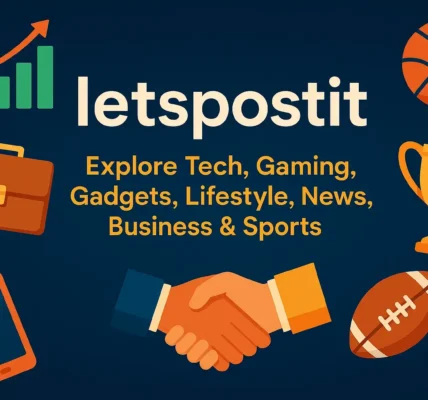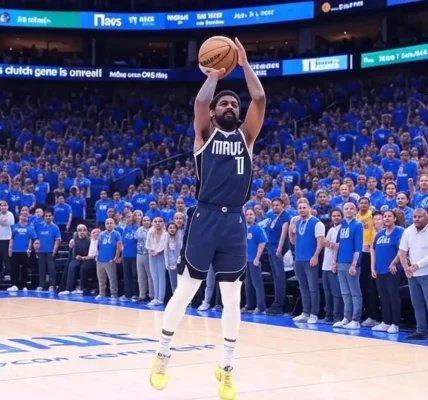Imagine drafting your dream fantasy basketball team, watching your star player sink a buzzer-beater, and cashing out your winnings instantly—no delays, no hidden fees, just pure victory.
Now picture owning that player as a one-of-a-kind digital collectible you can trade for profit. This isn’t a far-off dream—it’s the reality of fantasy sports apps powered by blockchain and NFTs in 2025.
The fantasy sports industry is booming, with over 60 million players in the U.S. and a global market projected to hit $48.6 billion by 2027 (source: Grand View Research). But traditional platforms are stuck in the past, riddled with issues like unfair scoring, slow payouts, and bot-driven cheating.
Blockchain is flipping the script, delivering transparency, lightning-fast transactions, and exciting new ways to play.
In this guide, we’ll explore how blockchain and NFTs are revolutionizing fantasy sports, why they’re the future, and how you can build a next-gen platform to dominate the market. Let’s dive in!
1. Why Blockchain Is a Game-Changer for Fantasy Sports
Blockchain isn’t just the tech behind Bitcoin—it’s a decentralized, tamper-proof ledger that records every transaction across a network of computers. Think of it as an unbiased referee ensuring every play in your fantasy sports app is fair, secure, and transparent. Here’s why it’s shaking up the industry:
- No More Cheating: Blockchain’s immutable records mean scores and results can’t be fudged. Every move is locked in, visible to all.
- Instant Payouts: Cryptocurrency transactions bypass middlemen, delivering winnings in seconds with minimal fees (e.g., Solana charges just $0.0001 per transaction).
- Trust Through Transparency: Players can audit game data on public blockchains, so you know the contest isn’t rigged.
A real-world example? Sorare, a blockchain-based fantasy soccer platform, lets players own and trade NFT athlete cards while competing for crypto rewards. Since launching in 2018, it’s skyrocketed to a $4.3 billion valuation, proving blockchain’s massive potential.
2. The Problems Plaguing Traditional Fantasy Sports Apps
Before we unpack blockchain’s solutions, let’s face the ugly truth about centralized fantasy sports platforms. They’re fun until they’re not—here’s why players are fed up:
2.1 Lack of Transparency
Most apps operate like secret clubs. A single company controls scoring, payouts, and rules, leaving players clueless about what’s happening behind the scenes. Scrolling through X, you’ll find users ranting about “sketchy leaderboard changes” or “points vanishing without explanation.” Without transparency, trust takes a hit.
2.2 Slow and Costly Payouts
Won a big contest? Congrats—now wait a week for your money. A 2024 survey revealed 35% of players face payout delays, with some platforms skimming up to 10% in fees. Worse, chargeback fraud—where players dispute payments to reclaim funds—punishes honest users and drives up costs.
2.3 Security Nightmares
Fantasy sports apps store sensitive info like credit card details and addresses, making them hacker bait. In 2023, a major gaming platform leaked 2 million user accounts due to weak encryption. Centralized servers are a ticking time bomb for data breaches.
2.4 Bots and Cheaters
Nothing kills the vibe like losing to a bot. Automated scripts flood contests, dominate leaderboards, and steal prizes. A 2024 study estimated 15% of entries on some platforms are bot-driven, turning fair play into a fantasy of its own.
3. How Blockchain Fixes These Problems
Blockchain is like a superhero for fantasy sports, swooping in with decentralized, transparent, and secure solutions. Here’s how it tackles each issue:
3.1 Decentralized Fairness
Unlike centralized apps, blockchain platforms spread control across a network. Smart contracts—self-executing code on the blockchain—run contests, enforce rules, and distribute prizes automatically.
No shady middleman can tweak the results. Players can check every transaction on a public ledger, ensuring the game is legit.
Example: A smart contract could lock in your fantasy team’s score the moment a real-world game ends, paying out winnings instantly based on verified stats.
3.2 Lightning-Fast, Low-Cost Payments
Blockchain cuts out banks and payment processors, enabling peer-to-peer crypto transactions. You get your winnings in seconds, not days, with fees as low as a fraction of a cent. Plus, blockchain’s finality eliminates chargeback fraud—no more players gaming the system.
Stat: Solana processes 65,000 transactions per second, compared to PayPal’s 200, making it a perfect fit for fantasy sports payouts.
3.3 Ironclad Security
Blockchain uses military-grade cryptography to protect your data. Instead of storing info on a hackable server, it’s spread across a decentralized network. Decentralized identity (DID) systems ensure only verified players join, reducing fraud. Your personal details? Safe and under your control.
3.4 Bye-Bye, Bots
Blockchain-based apps fight bots with unique blockchain IDs and AI-driven fraud detection. Every player’s identity is verified, ensuring only real humans compete. Smart contracts can also flag suspicious activity, keeping contests fair and fun.
Comparison Table: Centralized vs. Blockchain Fantasy Sports Apps
| Feature | Centralized Apps | Blockchain Apps |
|---|---|---|
| Transparency | Opaque, company-controlled | Fully auditable ledger |
| Payout Speed | Days to weeks | Seconds |
| Transaction Fees | 5–10% | <1% |
| Security | Vulnerable to breaches | Cryptographic protection |
| Bot Prevention | Limited | Blockchain ID + AI |
4. NFTs: The Future of Fantasy Sports
If blockchain is the backbone, Non-Fungible Tokens (NFTs) are the heart of next-gen fantasy sports. NFTs are unique digital assets on the blockchain, like virtual trading cards you can own, trade, or play with. Here’s how they’re changing the game:
4.1 Own Your Players
With NFTs, you can own digital versions of real-world athletes. These aren’t just pixels—they’re verifiable assets on the blockchain. For example, you could buy an NFT of LeBron James, use it in your fantasy lineup, and trade it for profit if his value spikes.
Case Study: NBA Top Shot, a blockchain-based collectibles platform, has generated $1 billion in sales since 2020 by selling NFT highlight reels. Fantasy sports apps are next, letting players own and compete with athlete NFTs.
4.2 Play-to-Earn (P2E) Models
NFT-based apps introduce play-to-earn mechanics, where you earn crypto or valuable NFTs by winning contests. Imagine drafting a killer fantasy team, crushing the leaderboard, and earning a rare NFT worth hundreds. You can keep it, sell it, or trade it in secondary markets.
Example: Sorare players earn crypto rewards based on their NFT teams’ performance, with top cards selling for $100,000+ on marketplaces.
4.3 Fan Engagement on Steroids
NFTs create a gamified economy that keeps players hooked. Rare athlete NFTs can appreciate in value, turning casual fans into investors. Some platforms even let NFT holders vote on league rules or access exclusive events, like virtual meet-and-greets with athletes.
Unique Angle: In 2025, expect NFT-driven “fan DAOs” (Decentralized Autonomous Organizations) where players co-own fantasy leagues and decide how they’re run. It’s like being both a player and a team owner.
Read Also: San Francisco Giants vs Dodgers: Match Stats Breakdown
5. How to Build a Blockchain-Based Fantasy Sports App
Ready to launch your own blockchain-powered fantasy sports platform? Here’s a step-by-step roadmap to create a secure, scalable, and user-friendly app that stands out in 2025.
5.1 Pick the Right Blockchain
Your choice of blockchain impacts speed, cost, and features. Here’s a quick rundown:
- Ethereum: King of smart contracts and NFTs, but gas fees can be high ($5–$50 per transaction).
- Solana: Lightning-fast (65,000 TPS) and cheap ($0.0001 per transaction), ideal for high-volume apps.
- Polygon: A cost-efficient Ethereum layer-2 solution, great for NFT marketplaces.
- Flow: Built for gaming and NFTs, used by NBA Top Shot.
Pro Tip: Solana or Polygon are top picks for fantasy sports due to their speed and affordability.
Table: Blockchain Platforms for Fantasy Sports
| Platform | Speed (TPS) | Transaction Cost | Best For |
|---|---|---|---|
| Ethereum | 15–30 | $5–$50 | Smart contracts, NFTs |
| Solana | 65,000 | $0.0001 | High-volume transactions |
| Polygon | 7,000 | $0.01 | Scalable NFT apps |
| Flow | 1,000 | $0.01 | Gaming, collectibles |
5.2 Develop Secure Smart Contracts
Smart contracts handle contest creation, scoring, and payouts. They need to be bulletproof to avoid hacks. Hire developers skilled in Solidity (for Ethereum) or Rust (for Solana) and conduct rigorous security audits.
Cost Insight: Developing smart contracts can cost $10,000–$50,000, depending on complexity.
5.3 Integrate Crypto Wallets
Players need a way to store and spend crypto or NFTs. Integrate user-friendly wallets like MetaMask, Phantom, or Trust Wallet. Ensure the wallet setup is seamless—nobody wants a clunky onboarding process.
5.4 Design an Intuitive UI/UX
Blockchain is complex, but your app shouldn’t be. Focus on:
- Easy Team Drafting: Simple drag-and-drop interfaces.
- Live Updates: Real-time scores and leaderboards.
- NFT Marketplace: A sleek hub to buy, sell, or trade athlete cards.
Example: Sorare’s clean design makes NFT trading feel like browsing a sports card shop.
5.5 Hire Expert Developers
Building a blockchain app requires niche skills. Look for developers with:
- Experience in Web3.js, Solidity, or Rust.
- A portfolio of blockchain or gaming projects.
- Knowledge of fantasy sports mechanics.
Cost Estimate: A full blockchain fantasy sports app costs $50,000–$200,000, depending on features and team location. Hiring blockchain developers in the USA ensures top-tier expertise but comes at a premium.
6. The Future of Blockchain in Fantasy Sports
Blockchain and NFTs are just getting started. Here’s what’s on the horizon for 2025:
- Metaverse Integration: Play fantasy sports in virtual stadiums, watching your NFT team compete in 3D.
- AI-Powered Analytics: Use AI to predict player performance and build smarter lineups.
- Sports League Partnerships: The NFL and NBA are exploring blockchain for fan engagement—expect official NFT collections and crypto rewards.
- Fan-Run Leagues: Decentralized Autonomous Organizations (DAOs) will let players co-own and govern fantasy platforms, voting on rules and prize pools.
Prediction: By 2027, 50% of fantasy sports apps will use blockchain or NFTs, driven by user demand for fairness and monetization. Early adopters will dominate the market.
Quick Read: SSIS 469: Ultimate Guide to Fixing Errors and Boosting Data Integration
7. Final Thoughts: Is Blockchain the Future of Fantasy Sports?
Blockchain and NFTs are rewriting the rules of fantasy sports, delivering transparency, security, and play-to-earn excitement.
From instant payouts to owning digital athletes, these technologies empower players and create new revenue streams for platforms.
Whether you’re a fan dreaming of a fairer game or a business eyeing the $48.6 billion market, now’s the time to embrace blockchain.
Ready to build a blockchain-powered fantasy sports app that crushes the competition? Partner with top blockchain developers in the USA to create a secure, scalable platform that players love. The future is decentralized—don’t get left behind!
FAQs
What is blockchain in fantasy sports?
Blockchain is a decentralized ledger that records game data, scores, and payouts transparently. It ensures fairness, speeds up transactions, and prevents cheating.
How do NFTs work in fantasy sports apps?
NFTs are unique digital assets, like athlete cards, that players can own, trade, or use in contests. They enable play-to-earn models and boost engagement.
Which blockchain is best for fantasy sports development?
Solana and Polygon are top choices due to their speed, low costs, and NFT support. Ethereum is great for complex smart contracts but pricier.
How much does it cost to build a blockchain-based app?
Costs range from $50,000 to $200,000, depending on features, blockchain choice, and developer rates. Smart contract audits and UI/UX design add to the budget.
How can I hire blockchain developers?
Look for experts in Solidity, Rust, or Web3.js with experience in gaming or NFT projects. USA-based developers offer premium skills but higher rates.






